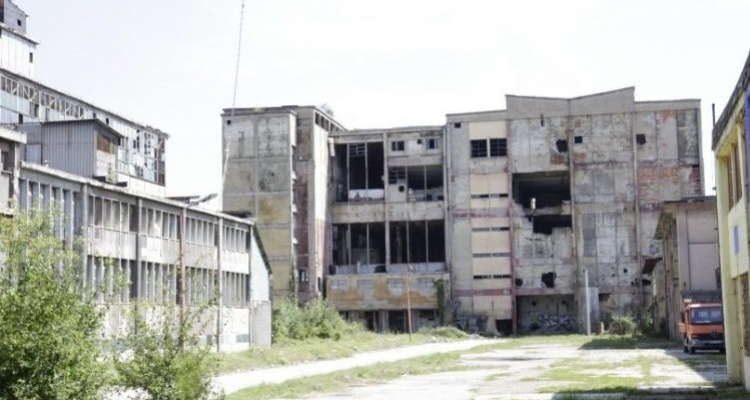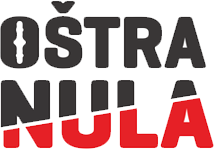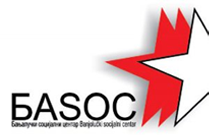the sequel of the story of the downfall of companies in Banjaluka and the process of privatization followed by major wrongdoings
11% after 34 years
The largest production volume of 12,600 tonnes of steel castings was found in Banja Luka Steel Foundry “Jelšingrad” in 1984. Today, 34 years later, the Jelšingrad Steel Foundry casts approximately 120 tons of steel a month, or 1,440 tons a year. The production volume of the Steel Foundry today represents only 11% of production since 1984.
The Jelšingrad Steel Foundry was founded in 1936. One year later, all production and supporting facilities were built, and complete equipment for the production of castings and various machines was installed. Jelšingrad has been developing two industries since then: foundry and mechanical engineering.
All of Jelšingrad’s facilities and plants were destroyed in World War II, but around a year after the war had finished, they got reconstructed and became the state property. Until 1964, the foundry was used for iron, steel, and non-ferrous metals, and then it was decided it would only specialize in casting the steel casts.
Reconstruction and modernization of the Foundry for an annual capacity of 16,000 tons of steel castings were completed in 1982, only to reach the maximum production volume of 12,600 tons of steel castings two years later. Since that year, the volume of production started falling, only to drop to 500 tons a year between 1991 and 1995. From thereon, the production gradually increases, and in 2005 production levels reached 2,326 tons, only to produce 4,225 tons of steel castings in 2007.
Jelšingrad Steel Foundry was privatized on Jun 1, 2005 – it was purchased by Livar from Ivančna Gorica, Slovenia, which is the largest single owner with 43,03% of the capital. Before the privatization, the foundry employed close to 380 workers (there were 1,500 before the war), and today there are 225.
Jelšingrad made its first export in 1947. Four years later, Jelšingrad built the oxygen factory and mechanical workshop – the future Machine Tool Factory TAS. In 1973, Jelšingrad was an establishment with six basic industries: Banja Luka Steel Foundry, Bačka Topola Steel Foundry, Banja Luka Machine Tool Factory, Bosanska Gradiška Machine Factory, Prnjavor Light Machine and Crane Factory, and Kotor Varoš Machine Factory.
The resort and land of FAM Jelšingrad, in Biograd na Moru, Croatia, of the estimated value of 542,000 BAM, were a subject of dispute between Jelšingrad and Steel Foundry five years ago. Today, that same land is the state’s property.
Leather, livestock, and metal
It’s not just the Čajevec halls that have been turned into wedding salons. The first company to transform into a wedding and funeral salon was Woman Bags and Leather Goods Factory Jadranka that employed more than a hundred women.
In the 90s, the factory falls into a financial crisis, and the management seeks help from Nova Banjalučka Banka, which activates mortgage in 2004. The factory hall and land, in an attractive location in the center of the city, were sold because of a loan of 300,000 BAM that the factory could not return.
Ilija Vučić, the owner of the Ševa night club, became the new holder of Jadranka. In the former factory, Vučić opened a wedding salon and built an apartment building and a gas station beside it, for which he later obtained a construction permit because the gas station was located across the road from a school and kindergarten. He sold the gas station, renting the wedding salon space for a supermarket. Today, the AS Supermarket is located in the area of the former factory. Two unanswered questions follow the purchase of Jadranka – where are the machines and the majority of the documentation?
Dragica Knežević had worked in one of the sectors in Jadranka in Gornja Piskavica for six years, between 1986 and 1992. At that time, said Dragica, Jadranka manufactured the top parts of shoes and gloves for the foreign market and exported them to Germany.
In that period, Jadranka employed close to 200 workers. It had its plants in Piskavica. We worked hard. The salaries were high and regular. When Jadranka shut down, part of the workers applied to the Employment Bureau, some of them retired, and the others continued searching for employment – Dragica Knežević said.
Another factory formerly located in Lauš collapsed – the Leather Factory Lauš. The epilogue to the giant’s downfall played out in front of the District Attorney’s Office Banja Luka when the police filed a lawsuit against leather factory owner Vukan Štrbac and his daughter Daliborka Perić on suspicion of tax evasion of 3,027,000 BAM.
Perić and her father were suspected of deceiving the heads of other companies and trafficking 42 residential and business premises through the Stanogradnja Komerc and Leather Factory Lauš, which were under the ownership of their family.
The crash of this company began immediately after the war when, like many others, it lost its market. In addition to losing the market, the tannery could not obtain the environmental permits necessary for production.
The tannery could no longer compete with Italian, Pakistani, and Indian markets. Besides, basic staples became inaccessible because Krajina hadn’t had livestock production developed.
Military, Police and Civil Apparel Manufacture December 22 got privatized in 2001. Suspicions of illegal sale of business premises prior to privatization, even after the sale of the state equity, has never been proven. December 22 was founded in 1954, and was in the state ownership until 1991, at the end of which there were reorganization and the change of ownership.
The 2012 audit report, the latest to be done for the company, stated that short-term liabilities of December 22 were greater than its assets and jeopardize liquidity, financial stability, and business continuity. The controversial businessman from Banja Luka Jovan Vidović, who is the largest holder of shares (31%), claims that December 22, meanwhile, recovered.
We sew uniforms for Slovenes. We have 50 working women working in a 1,200-square-foot hall. We could hire many more to work, but the Republic of Srpska Ministry of Interior prefers importing uniforms from Hungary to manufacturing them in Srpska.
Such tenders are given, the highest points were given to the one who could deliver the goods immediately. But, who has got, 4,200 in stock? Nobody, but the one that knows he is supposed to have – said Vidović.
Metal company from Banja Luka employed 650 workers before the war, and it was one of the most successful wholesale companies in the region. The unknown war profiteers had emptied the warehouses of Metal during the war which stored more than 20 million BAM in goods.
A businessman from Prnjavor Petar Dušanić was the first one to get hold of the shares of this company during the privatization and came into possession of 22% of them in 2003. Even though OHR had tried to dispute the process of privatization, Dušanić formed a loyal board with the help of which he openly manipulated the property of Metal. Mostly, he made business deals with himself, that is between Metal and a multitude of other companies who were under his control, but the most with the Dušanić Company.
Through Tempo construction company, which was founded together with the owner of the former Tempo shopping mall and a chain of Moj Market grocery stores Mirko Risović, Jovo Vidović bought 11% of the Metal shares. With the help of small shareholders, he managed to eliminate Dušanić and his people from administration, and in mid-2008 Branko Milošević becomes the chairman of Metal.
Stočar Company from Banja Luka got founded in 1956 as a business association for cattle breeding and farming cooperatives of Banja Luka district. Stočar was engaged in the production and processing of animal meat.
The largest number of shares of Stočar is held by the Basel based company Kreis-Industriehandel, which owns both Fruktona and Vitaminka, but the majority of shares are still held by the Republic of Srpska through the Action Fund, Pension Reserve Fund, and Restitution Fund.
Today, Stočar employs as little as 17 workers. There used to be ten times as many. During the war, Stočar was sold to Bojčeta Impex company. The Government of the Republic of Srpska had looked for a way to recover Stočar, and Blažo Buljić, who is the chairman of Stočar today, took over that task. Today, there is a mortgage on Stočar’s lot, because the company had to repay the accumulated debt.
Final indicators
According to Tax Administration data, there were 67,896 people employed in the region of Banja Luka at the end of last year. The highest number of employees is in the field of trade (12,355). Public administration, defense, and compulsory social insurance employed 8,947; manufacturing – 8,760; healthcare and social work – 5,705; education – 5,200; professional, scientific, and technical activities – 3,839; tourism and catering – 3,381; information and communication activities – 3,190; financial activities and insurance – 3,145; in the field of transport and storage – 2,715, while in other activities there were 7,295 employees. Clearly there are fewest who are employed in the economy.
In 2008, there were fewer businesses in Banja Luka, more workers, and fewer losses, and in 2016, there were more businesses, fewer workers, and losses significantly higher. According to the available data, it looks like this: in 2008, 2,352 companies were operating in Banja Luka, 44,834 were employed, and losses amounted to 169,260,585 BAM. Ten years later, the number of companies enlarged to 2,673, and the number of workers, as well, to 46,648, but the losses were 437.633.766 BAM. The largest losses were recorded in 2014 when they amounted to 543.919.186 BAM.
The total revenue of the city’s economy was 6,4 billion BAM. The largest share in the revenue in 2016 was generated by trade (2,37 billion) and manufacturing companies (1,31 billion). The total expenditures in the economy in 2016 amounted to 6,2 billion BAM. The total profit of the companies increased by 20,2% compared to the profit from 2015, while the total loss of enterprises by calculation for 2016 recorded an increase of 44,3%.
The total value of exports from the area of Banja Luka, realized from January to December last year, amounted to 643,6 million BAM, while the value of realized imports amounted to 1,8 billion BAM.
The export value of Banja Luka’s economy in 2017 represents 17,6% of total exports in the Republic of Srpska in 2017, while the value of imports in Banja Luka makes 36,8% of the total imports in the Republic of Srpska in 2017. The Republic of Srpska Investment-Development Bank recorded 35 non-privatized companies with headquarters in Banja Luka, whose shares are included in the portfolio of the Republic of Srpska Stock Fund. Most of the companies, 19 of them, are not active or went bankrupt, while 16 of them still operate. By the decision of the Government of the Republic of Srpska on the designation of companies of strategic importance, some of the operating companies, such as RS Airports, RS Roads, RS Lottery, and Srpske pošte, will not be privatized until further notice.
* The text was produced within the media pool of the ACCOUNT Network (Anti-Corruption Network of Civil Society Organizations).
Frontal



